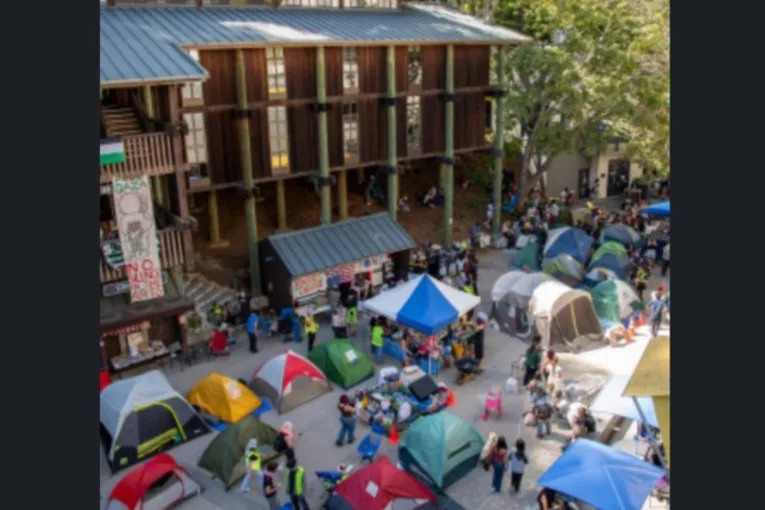
SANTA CRUZ, CA – The ACLU Foundation of Northern California, the Center for Protest Law & Litigation, and civil rights attorney Thomas Seabaugh Monday said in a statement Monday they filed a lawsuit against the University of California, Santa Cruz, after the ban from campus of more than 100 students and faculty arrested at a pro-Palestine protest in May.
Rachel Lederman, senior counsel with the Center for Protest Law & Litigation, called the bans “incredibly punitive and profoundly unfair,” since “they went into effect on the spot, instantly cutting students and faculty from classes, jobs, and other school resources…On-campus residents were rendered homeless. Academic performance suffered.”
And, the senior staff attorney at the ACLU Foundation of Northern California deemed the bans “unconstitutional and overbroad,” charging that “officials used Penal Code section 626.4 to justify their actions, but UCSC’s own actions violated that very statute, as well as long-standing California Supreme Court precedent.”
In the ACLU’s statement, on May 30, about 100 law enforcement officers dressed in riot gear were sent by UCSC officials to clear a pro-Palestine encampment at the base of campus, giving unclear or inaudible dispersal orders and using violent policing techniques.
“Some of us were dry heaving from batons being thrust violently into our abdomens… Officers in full riot gear grabbed people by the neck. Some people were later hospitalized,” described Christine Hong, a professor of Critical Race and Ethnic Studies and Literature at UCSC.
By law, the lawsuit claims, a school must provide a hearing before removing someone from campus unless the individual poses a substantial threat, and, said the ACLU, no such findings were made with these bans and every person arrested was vulnerable to school officials withdrawing consent for them to remain on campus.
As explained by the ACLU, bans from campus were issued either by form or verbally, subjecting students to hardship amid final exams.
Some student plaintiffs told the ACLU that they became homeless, missed vital doctor appointments, and lost their jobs.
One of these plaintiffs, Laaila, explained, “I was a Resident Assistant living and working in campus housing so the ban was devastating. I failed my school courses as I could not access my computer, attend classes, or complete assignments.”
The ACLU said the statement reflects the fear of many students that UCSC will continue to illegally use Section 626.4 bans and target them for their student activism.
Attorney Seabaugh demands UCSC be held accountable, stating, “Our clients did not engage in conduct that posed a threat of significant injury to anyone or anything. Banning them on the spot was unconstitutional and a violation of basic democratic rights and academic freedoms.”
University of California President Michael Drake announced the university will strictly enforce protest restrictions in the name of “orderly operations.”